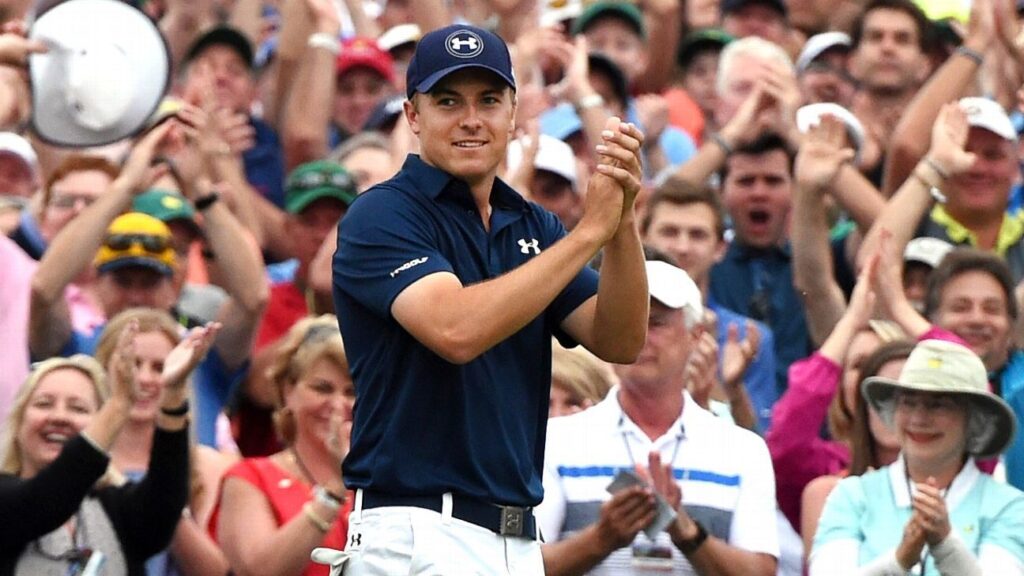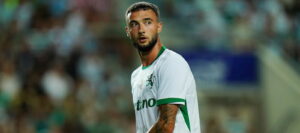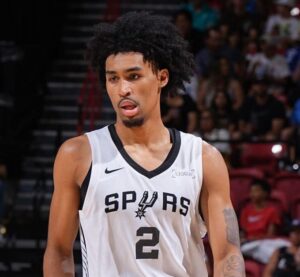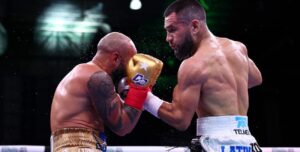-

Sam BordenApr 8, 2025, 06:45 AM ET
Close- Sam Borden is a senior writer for ESPN.com.
JORDAN SPIETH WALKS up the final fairway of Augusta National Golf Club with an unassailable lead. Fans shout and cheer and scream his name. Spieth bends over and ties his shoe as the sun sinks slowly behind the Georgia pines.
Spieth had pictured this moment, had dreamed about it forever. But living it at the 2015 Masters, he mostly just wanted it to end.
“I was almost rushing to get in instead of milking it and doing victory laps,” he says now. “You’d think you just want to make it last but at that point, with the stress of carrying the lead at that tournament from the first day on, I was just ready for it to be totally over.”
It looked that way, too. Watch the final hole again: Spieth fidgets, playing with his hair. He makes what CBS announcer Nick Faldo calls his “worst stroke of the week” on the second-to-last putt, pushing it right from 5 feet. He taps in and hugs his caddie, Michael Greller. Spieth reels through hugs for his parents and his girlfriend and his grandfather (who says, “I wanted to be here for this” into Spieth’s ear), then hugs Greller again. His parents suggest he take a lap around the green to revel with the spectators who have supported him, so he turns, claps as he takes a few steps, barely gets a quarter of the way around the circle of the 18th green and then zips away.
In an instant, it is done. Spieth shakes hands with a few caddies who have lingered outside the clubhouse. Then he’s in scoring. And within minutes, he’s in Butler Cabin, sitting in a chair across from the club chairman, Billy Payne, and telling the world that his new goal is to be a two-time champion like Bubba Watson, the 2014 winner who is about to slip the green jacket over Spieth’s shoulders.
A two-time champion. He was 21 and had been a one-time champion for barely half an hour.
A decade later, Spieth is still a one-time Masters champion carrying the physical and emotional scar tissue of a career that didn’t quite develop the way anyone expected. Looking back at that final hole, Spieth laughs softly at the speed of it all.
“I would hope to have another chance at that,” Spieth says. “And maybe I’d go about it a different way.”
IT’S DIFFICULT TO OVERSTATE just how good Spieth was in 2015 and, even more, how fun it was to watch him. Tiger Woods‘ status as an elite-level golfer was unraveling and Spieth, along with Rory McIlroy and Jason Day, were the primary ones filling the void. The difference was that Spieth was four years younger than McIlroy and six years younger than Day. He was a wunderkind. Like Woods, he projected as a once-in-a-generation prodigy.
It wasn’t only the results, either. Vijay Singh won nine times in 2004 but didn’t captivate the way Spieth did. He didn’t sparkle. Part of Spieth’s appeal was how he moved the ball around the golf course, the fact that he wasn’t then (and isn’t now) a particularly long hitter off the tee but was peerless in the parts of the game that look especially dazzling on television: chipping and pitching creatively around the green and rolling in putts from everywhere.
He bent approach shots over and under branches. He holed out from bunkers in the most dramatic moments. He regularly mixed in driver swings that sent the ball off the planet to the left or right, only to follow them up with some sort of eye-popping miracle recovery and a par putt that banged in off the back of the cup.
“Jordan Spieth chips in more than anybody I’ve ever seen in my life,” two-time U.S. Open champion Curtis Strange once told reporters. “I used to say about Tom Watson, people would say, ‘Oh, he’s lucky,'” Strange said. “But when you do it every day, it’s not luck. He’s aiming at something.”
Ben Crenshaw, a two-time Masters champion and a mentor for Spieth (they both live in Texas), once told Spieth that his approach to the game at such a young age reminded him of the Wild West legend Wyatt Earp.
“He’s got a gunslinger mentality,” Crenshaw says. “I called him that one time and he kind of looked at me quizzically and I said, ‘Well, you’re bold and you take chances.'”
There was a magnetism to Spieth, a charm. He did the classy things — like when he missed the four-hole playoff at the 2015 British Open by a shot and then stuck around for an extra hour to shake hands with eventual champion Zach Johnson — but he also wasn’t boring. At a tournament in Phoenix that year, he famously pranked his friend Justin Thomas by having Thomas’ car moved from the players’ parking lot. Thomas freaked out, thinking his car had been towed downtown as Spieth cackled. “He was in a panic attack for a few hours, so that was worth it,” Spieth said.
In 2015, Spieth was first on the money list, first in scoring average, first in top 10s. His comps were as good as any golfer could ever want. According to Data Golf, the golf analytics website, his 2015 season is statistically the ninth-best by any PGA Tour professional since 1983. And of the eight seasons ahead of him, only two — Scottie Scheffler‘s in 2024 and Singh’s in 2004 — came from someone other than Woods.
“Spieth, starting out, was Tiger, basically,” Matt Courchene says. He runs the Data Golf site with his brother, Will. “Actually, at the end of 2015, he was only 22 — so he was really ahead of Tiger’s pace at that point, which is crazy.”
The Masters was the jewel of it all. Spieth had finished runner-up a year earlier as a rookie and arrived for his second visit having won or finished runner-up in each of his past three tournaments. He proceeded to open 64-66 to set the Masters record for lowest 36-hole score, and — in a recollection emblematic of both his mindset and his level at the time — Spieth says he recalls two things more than most about that start.
First, that he blew a hybrid over the green on No. 15 on Thursday, a miscalculation that led to a bogey and, he believes, actually cost him a chance to shoot 61 or 62.
And second, that as the scores filtered in late Friday afternoon and he saw where he would be going into the weekend, Spieth felt a clarity (if not an inevitability) washing over him.
“OK, well, this is mine now,” he says he thought before bed that evening. “You know, it’s mine to go out and win or mine to lose.”
It was. He led by three shots after Round 1, five after Round 2. A 70 on Saturday, including a surgical flop shot and par putt on No. 18, put him in front by four with 18 holes to go. That night, he watched the comedy “Forgetting Sarah Marshall” — “one of the greatest movies in the world,” according to Spieth — and prepared to make history.
On Sunday, Justin Rose tried valiantly to inject some doubt into Spieth’s triumph but wasn’t close. “It felt like he’s had the lead for the past month,” Rose said afterward, and Spieth — after hurrying through his moments on the final green — did allow himself a moment to linger during the post-round news conference.
After answering more than a dozen questions about the day and the week, the Augusta National moderator asked Spieth to finish up by doing the typical birdies-and-bogeys recap that is the perfunctory end to many of these sessions. With deadlines approaching, many journalists even got up and left the room.
But Spieth dutifully — gleefully, even — went through what he did on every single hole in the final round, spending nearly 20 minutes and, according to the transcript, 2,593 words breaking down exactly how, as he put it, he was able to “conquer my favorite tournament in the world.”
It was a coronation, and one that looked like it would last a while. When Spieth won the U.S. Open at Chambers Bay that June, talk of a Grand Slam percolated and hardly seemed unreasonable. He didn’t win the British Open or the PGA, but he finished tied for fourth and second — or, put another way, only four players finished ahead of him in majors all season. He ended the year with five wins, the FedEx Cup and every meaningful award, as well as a stranglehold on the future of golf in the post-Tiger Woods era. Add in that everyone in the game largely agreed that the course that fit him best was Augusta National, and it felt almost impossible he wouldn’t win another Masters. In truth, it felt more likely that he would win a couple.
It didn’t happen. And instead of continuing to rise, Spieth’s career tumbled into a series of fluctuations, a string of jarring, heaving swings that left him looking at times like the genius we revered and at times like a magician who can do some incredible tricks but never actually puts on a show.
ON THE 13TH hole of the final round of the 2017 British Open, Spieth blasted his tee shot wildly off-line. It ricocheted off a spectator’s head and landed in Royal Birkdale’s rolling dunes. It appeared to be a big mistake at the worst time, a critical moment that would drop Spieth out of contention.
Except then Spieth took a penalty drop, hit the ball on the green, saved a bogey and ripped off a birdie-eagle-birdie-birdie run to win the tournament by three.
It was Spieth’s third major title and the highlight of a season that, while not filled with as many trophies as 2015, was statistically nearly as good.
It was also the last time Spieth would win a tournament for nearly four years.
Understanding exactly why Spieth slipped into a slump — if that’s the right word for something that lasts so long — is impossible. Golf is maddeningly fickle and its history is full of players who have been otherworldly for stretches of time only to lapse into something more mortal.
Theories abound regarding Spieth’s dip. Unlike some top players who find themselves flailing, Spieth has not changed his caddie or the coach he has worked with since his junior days, Cameron McCormick. But Spieth did tinker with his swing, according to McCormick, who said in 2019 that Spieth’s ideas at the time ran counter to what McCormick had preached.
“I became a more secondary instructor-coach,” McCormick said on Claude Harmon’s podcast. “He became less focused on the things that made him great, which was an ability to control the golf ball, and an ability to make an impact happen.”
Indecision in Spieth’s ballstriking put pressure on other parts of his game. His driving had always had some variance, but his putting — which had long been his rock — also started slipping, piling on even more mental strain.
A consistent top-10 putter on tour from 2015 to 2017, he ranked 123rd in strokes-gained putting during the 2017-18 season and was 101st, 79th and 155th the past three seasons.
“Spieth’s a horrible short putter now,” says Courchene, the golf statistics analyst. “I’m not saying it’s the yips, but the numbers show he clearly has issues.”
Was the low point the time he shot 81 at Riviera in 2019? The 12 straight months without a single top 10 from 2020 to 2021? The disappearance of his game in the middle of a Friday match at the 2023 Ryder Cup? In truth, it doesn’t matter. Spieth won 10 times between 2015 and 2017, then only twice from 2018 on. After once spending 26 straight weeks at No. 1 in the world rankings, he fell as low as 92nd and is currently 65th, just behind Alex Noren and Mackenzie Hughes.
“If you feel like you’re kind of stuck in a rut, it’s really hard to fake it ’till you make it in golf,” Spieth said.
According to Data Golf’s ranking points system, Spieth’s performance up through 2017 was so much better than the average player that his results, as Courchene said, best compared to (and even exceeded) all-timers like Woods and McIlroy; since then, Spieth’s production is more in line with players such as Sungjae Im or Daniel Berger — decent pros who, with no offense intended, are not at present especially close to being superstars.
Whatever the cause one chooses to blame, the results are clear: Spieth has simply been a whole lot of average. When you win three majors and 10 tournaments in your first five years as a full-time pro, average can feel like undeniable underachievement.
“You go look at his strokes gained total from 2013 to 2017, and you look at his strokes gained total now, and he’s roughly half the player that he used to be,” former pro and Golf Channel analyst Brandel Chamblee told Golfweek last year.
“That’s not oblivion by a long stretch, but when you’re winning majors and setting the world on fire and winning as often as he was, to where he’s at right now is quite a difference.”
Spieth doesn’t shy away from that characterization, either. He is very aware that a scattered victory at the Valero Texas Open or Heritage Classic — while nice — isn’t close to delivering on what 2015 promised. He hasn’t won a PGA Tour event in three years.
“I think if you told me at the end of that year what my accolades would be, or where I’d be [10 years later],” Spieth says, “… it’s not quite what I would have been looking for.”
And yet still: However challenging a stretch Spieth has sunk to, the faith in his ability to deliver at the Masters persists. Each spring, April arrives with the same flurry of talking-head pregame show conversations, the same bettors plunking down money and the same headlines about Spieth rediscovering himself on Magnolia Lane. No matter Spieth’s struggles, the Masters remains a reset button for Spieth believers, an annual expression of genuine faith that’s objectively unmatched when compared to any other player of Spieth’s level or stature.
All of which raises another appropriately seasonal question as Spieth — again — steps to the first tee at Augusta National:
Why might this year be different from all other years?
THERE IS A LILT to Spieth’s voice when he talks about Augusta National, a warmth and comfortable familiarity. It makes sense — most of us probably sound similar when we lapse into memories about the formative classrooms or fields or gyms of our college days, and it just so happens that Spieth’s equivalent is one of the best-known golf courses in the world. (Remember, he was 20 when he finished tied for second there for the first time.)
“I just have a good feel about the place because I know that I don’t have to have my best stuff to play well,” he says. “I’ve made birdie on every hole out there.”
As it turns out, that claim is not entirely true (at least not in tournament play); through 40 Masters rounds, Spieth actually hasn’t yet birdied the 11th hole at any point. But the sentiment is fair enough: This is a place where he has seen, and lived, plenty.
There are some nightmares, of course. A final-round 75 in 2017 was a hope-killing slog, the opening chip that rolled back to his feet and sent him toward a first-round 79 last year was uncomfortably jarring, and the 2016 meltdown, when he put two balls in the water on the 12th and blew a five-shot lead on the back nine on Sunday was, as Faldo described it, “a mixture between disaster and torture.”
Yet even with those low moments, it is (so far) statistically true that Spieth overperforms at Augusta, with Data Golf’s calculations showing that Spieth scores about a stroke-per-round better at the Masters than the model would expect. His historical player profile — as someone who shines in iron play and around the green — also matches Data Golf’s ideal fit for the course.
The question is whether Spieth can actually perform to that profile anymore.
Feel like doubting? Point to the missed cuts last year and in 2022. Want to believe? He sandwiched those MCs with a tie for third in 2021 and a tie for fourth in 2023. Spieth also is adamant that the end of last season was a significant turning point because he addressed a wrist injury that first bothered him in 2018, lingered for years and was aggravated again in 2023. He finally had surgery last August.
Spieth didn’t hit balls for about three months after the procedure. He didn’t play a full round until another month after that, working instead on trying to return to the swing thoughts that carried him when he was younger. “I’m not calling this swing changes,” he told the Associated Press in January. “These are just a reset into some of the stuff I did that was my DNA, that was super advantageous that I had gotten away from for one reason or another.”
Now, Spieth says, he is healthy. He is confident. He is 31, despite it sometimes feeling like he has lived through two or three full careers already. He also knows Augusta National as well as anyone.
Justin Ray, the head of content at Twenty First Group, a sports intelligence and analysis firm, says no other major “is kinder to its longtime tenants” than the Masters, because it has the smallest field and is the only one of the four played on the same course every year. So given Spieth’s success at the Masters early in his career, Spieth “is a guy we’re going to think about every April until he doesn’t play golf anymore,” Ray says, regardless of his level anywhere else.
And why not? Fred Couples led after 36 holes when he was in his 50s and made the cut last year, when he was 63. Jack Nicklaus tied for sixth when he was 58. Four players have won green jackets more than 10 years apart: Nicklaus, Gary Player, Woods and Crenshaw — a mentor and fellow Texas resident — who won his two green jackets in 1984 and 1995, when he was 43 years old.
Spieth is aware of Crenshaw’s 11-year gap between titles, and it’s something he and those around him have seized upon as a reminder that he isn’t necessarily done yet.
Smylie Kaufman, the former pro-turned-broadcaster, went through his own battles with injuries (and the yips) before retiring early and moving into TV. He and Spieth talk often about how to push back against the mental strain of struggling.
“I texted him the other day, and I said, ‘This second act of your career, it’s not done yet. It’s not over. And I think the world is waiting to see what you’re going to be able to accomplish,'” Kaufman says.
Someday, Spieth says, he will tell his children — Sammy, 3; Sophie, 1; and a third who is due in July — all about his first act. About 2015 and the feeling on that Sunday and the rush of living out, however quickly, the sequence he had always imagined.
But every time he walks on the grounds of Augusta National, his hope is that they’ll ultimately be there to see something even more special. To share with him a moment that he will stop and savor and soak up for as long as possible.
“Some of the bad I remember quite clearly and a lot of the good I remember quite clearly,” Spieth says. “And then I think, ‘OK, this is still my favorite tournament in the world — how can I make more memories here?'”







